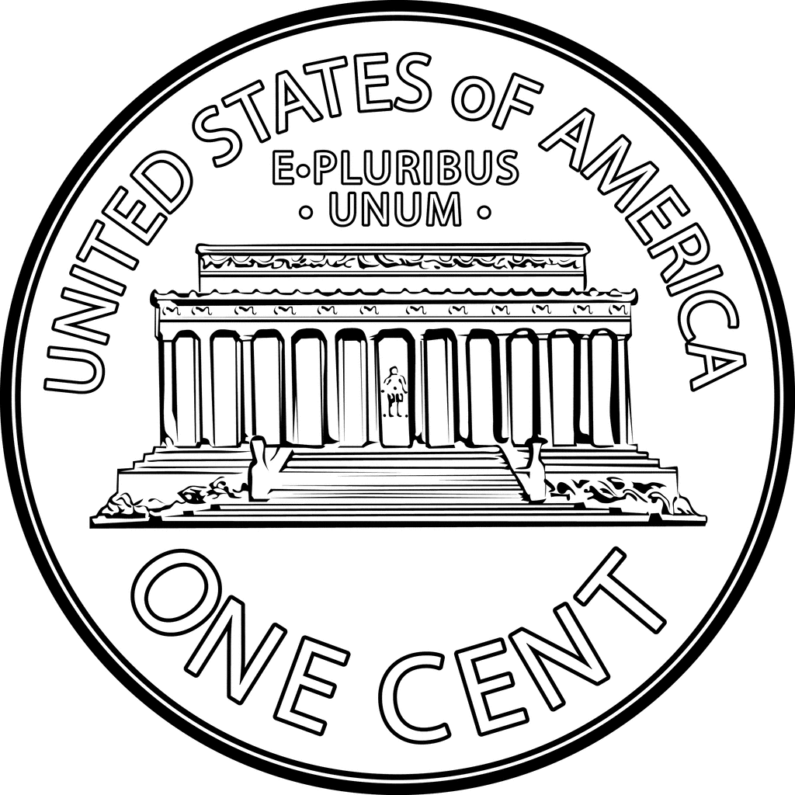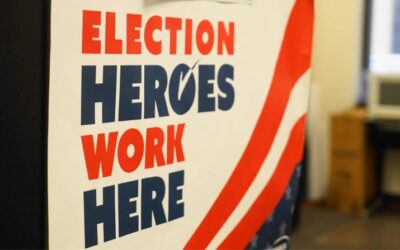For the second time in as many general elections, voters rejected a seventh cent of sales tax. Roughly 53 percent voted down a measure to support social services, housing, and transportation. This comes amid a major economic downturn that has officials scrambling to find alternative funding sources. Now officials may vote to increase Jackson’s property taxes instead, Jackson Town Councilor Arne Jorgensen said.
Jorgensen campaigned hard for a seventh cent of sales tax. “Well, I’m disappointed,” he said. “But this is the process.”
He says the seventh cent was one of the valley’s best tools to address community needs. “We’ve come to recognize that we need additional revenue in this community to invest in our community,” he told KHOL in October. “And this stems across a wide range of issues, many of those are systemic—that we’ve been talking about for decades like housing, transportation, conservation, and a rising awareness of health and human services.”
Those community priorities, Jorgensen says, are strapped for cash, especially in the face of budget cuts due to COVID-19. The town, for example, cut its 2021 budget by 36 percent. Shortly after, Gov. Mark Gordon announced “devastating” state budget cuts to the tune of $250 million. Those reductions will largely affect health and human services statewide.
Some residents, meanwhile, point to an unexpectedly busy summer that drew massive crowds to the valley. Jorgensen says it wasn’t enough.
“We don’t know yet how the full year is going to play out. While we had a lot of people in town, they did spend less so we did not match what we have done in the past,” Jorgensen said.
In his newsletter “CoThrive,” economist and Town Councilor Jonathan Schechter notes that sales taxes provide roughly two thirds of local government general revenue. Jackson Hole, he writes, is more dependent on sales taxes than the state of Wyoming is on hydrocarbons.
That funding source has been trending down. Then COVID hit.
From January to August, local taxable sales fell 11 percent in comparison to 2019. In just four months, Schechter wrote, the local taxable sales economy gave up more than 1.5 years’ worth of growth.
A Time to Tighten Belts… Tighter?
All but one elected official supported the measure for a seventh penny of sales tax. Republican Teton County Commissioner Mark Barron says it’s the wrong move at the wrong time.
“This community, like most of America, is suffering, financially, physically. COVID has run rampant through the nation and wreaked havoc on the economy,” Barron said. “And the last thing we should be doing is asking for more money from the people who pay the bills—our constituents.”
Barron pointed to his tenure as mayor of Jackson during the 2008 recession. He says it was incumbent on government to tighten their belts in the face of dwindling revenues.
“We didn’t ask for more money from our constituents. We reduced the size of government and we reduced the expense of government. And we managed to get through that four or five years. And that’s what we’re going to have to do again,” Barron said.
Jorgensen, for his part, acknowledges sales tax is regressive in nature. But, he says, residents would enjoy expanded social services if the seventh cent had passed. And he points out tourists would have paid roughly 55 percent.
Those talking points failed to convince voters like Kathie Brazinski.
“I think social services are very important, but I still think we need to figure out if there’s other money in other places that can be used, can be diverted to social services, for example,” she said. “Is there fluff over here? And I can assure you there is, because I’ve seen it over the years and I don’t want to bring up specific people or offices, but I’ve seen it.”
Other voters saw the seventh penny as a way to help their neighbors, and themselves. Ash Hermanowski says she too is skeptical about government spending. But, she says, part of the appeal of the seventh penny was that it would go, in part, to affordable and workforce housing projects. Unlike Brazinski, Hermanowski does not own her own home.
“Affordable housing is a huge issue for me right now. I, like a lot of people, struggle to find reasonable rent,” Hermanowski said.
Hermanowski says her work in the nonprofit sector also informed her vote. She focuses on projects that provide food assistance. The need for such support was great before COVID, she says.
“We need more money going to human services and social services anyway. So, for me, between COVID, between the large wealth gap we have here, like absolutely, if a seventh penny is going to go towards housing and social services—yeah, that’s huge,” she said.
With the seventh penny off the table, Jorgensen says officials will likely look at a few alternatives. One is examining the joint departments that the town and county oversee: Fire/EMS, Jackson/Teton County Housing Department, START Bus, and Parks and Recreation. Could the county take over more of the town’s share of funding? Currently the county and town fund these departments 55 and 45 percent respectively.
The Board of Teton County Commissioners cut the county’s 2021 budget by 20 percent and appears to be in a better position than the town. Chair of the Board of Teton County Commissioners Natalia Macker says the county’s partnership with the town is vitally important and the county is open to exploring options that will strengthen that partnership. But, she points out, the county takes the full brunt of other crucial services like the Teton County Health Department. Amid the COVID-19 pandemic, it has received support from federal CARES Act funding, but there is no telling how that could change in the coming months, Macker said.
Jorgensen and Macker agree that the county has a more stable revenue stream than the town because one-third of county revenue comes from property taxes, which the county raised earlier this year. And that stability is something the town wants. So, Jorgensen says, the other alternative is likely raising property taxes in town.
“Sales tax goes up and down much more based on the economy, where property taxes tend to be more stable and there’s a year lag time between property values and changes,” he said.
Jorgensen pointed to the 2008 recession as an example. He says the town saw an immediate reduction in revenue because such a large portion of that revenue comes from sales tax. The county, on the other hand, avoided much of that pain. “Property tax for the county didn’t see the reduction for another year. There was a buffer built in there. And even then, the drop in property tax was relatively small,” Jorgensen said.
Still, Jorgensen acknowledges that people opposed to more taxes, such as those who voted against the seventh penny, won’t be thrilled. So he’s contacting people in different demographics to talk to them about property taxes. “This is something that we have to be careful about. People will be unhappy,” Jorgensen said.
The challenge with property tax, Jorgensen says, is identifying and mitigating the negative consequences for the people that would be hard hit and have limited resources to respond.





